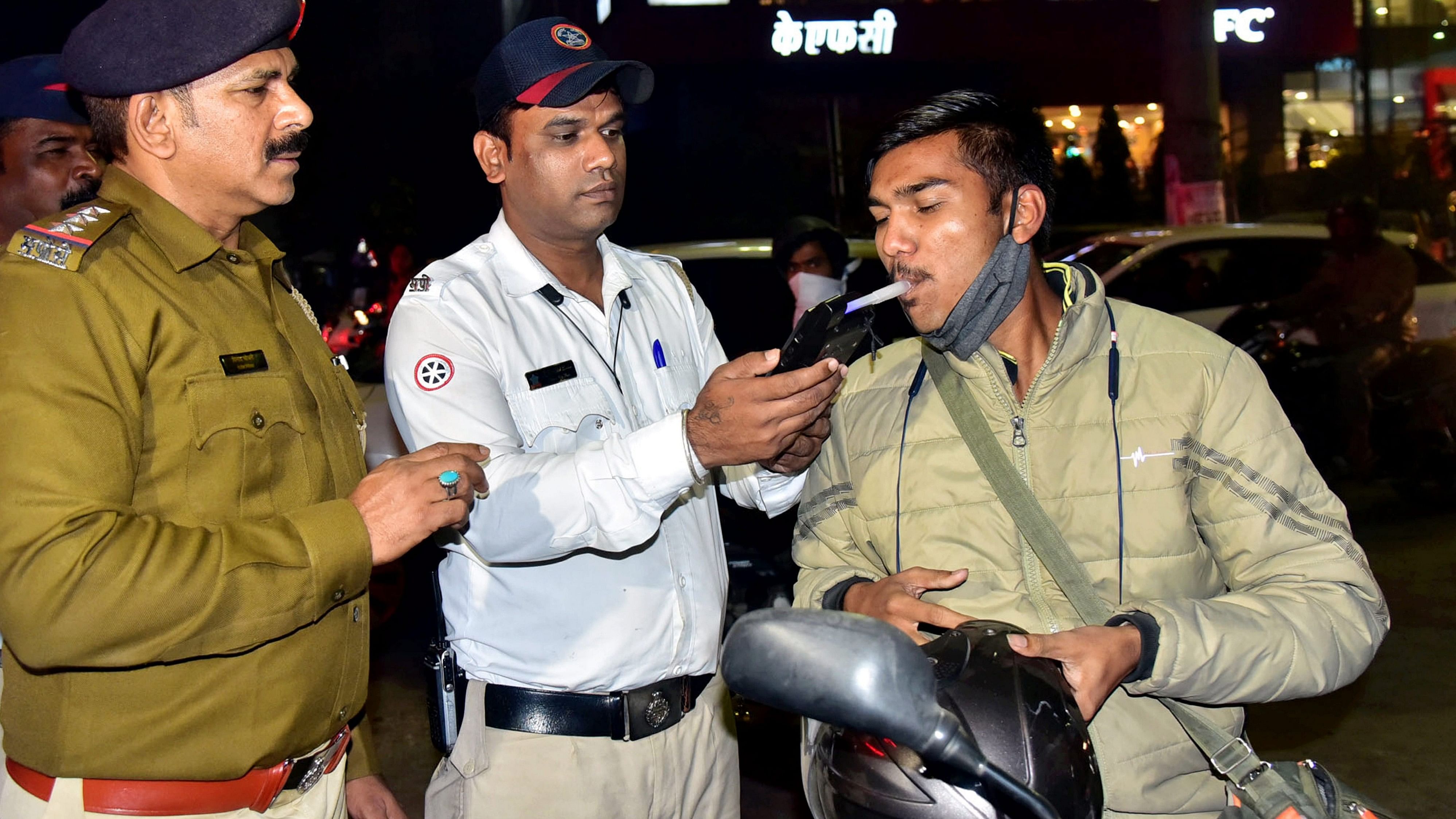
A policemen takes alcohol breath test of a motorist to tackle drunk driving.
Credit PTI Photo
New Delhi: Researchers at the Indian Institute of Technology (IIT), Jodhpur have developed a cost-effective human breath sensor that may not only measure alcohol content in drunk and driving cases but also help diagnose several diseases.
The technology depends on metal oxides and nano silicon operating at room temperature while the existing sensors are based on fuel cells.
According to the researchers, the device's primary function is to measure alcohol content in the breath in drunk and driving cases. However, it can also be helpful in disease monitoring.
"With some changes in sensing layers and the use of an array of sensors (for Electronic Nose or Artificial Nose), and data analytics, it can also be very useful for characterisation of diseases, such as asthma, diabetic ketoacidosis, chronic obstructive pulmonary disease, sleep apnea, and cardiac arrest, where the person's breath volatile organic compounds are monitored," said Saakshi Dhanekar, Associate Professor, Department of Electrical Engineering, IIT Jodhpur.
"There was a greater need for the development of a quick, affordable, non-invasive health monitoring device, given the growing concerns about the adverse impact of air pollution on human health and the environment," she added.
The existing sensors are based on fuel cell-based technology or metal oxide technology.
"Hence, it motivated the researchers to take up the work and develop a breath sensor whose cost will be less than the existing fuel cell technology-based device," Dhanekar added.
She explained that the current breath analysers are either bulky or require a long preparation time and a heater. This adds up to the power consumption of the device and a long waiting time.
"The new sensor operates at room temperature and is like a plug-and-play. The technology behind this device is an electronic nose with room-temperature operable heterostructure (metal oxide with nano silicon)," said Nikhil Vadera, a PhD student at IIT Jodhpur.
"The sensors react with the alcohol in the sample and depict a change in resistance. This change is proportional to the concentration of alcohol in the sample."
The data collected from this sensor array is processed using algorithms of machine learning - a type of artificial intelligence (AI) - for identifying the patterns of different components of breath and segregating alcohol from the mixture of volatile organic compounds, the researcher added.
The research was funded by the Biotechnology Ignition Grant Scheme (BIG), Biotechnology Industry Research Assistance Council (BIRAC), Science and Engineering Research Board (SERB), and the Ministry of Micro, Small, and Medium Enterprises (MSME).